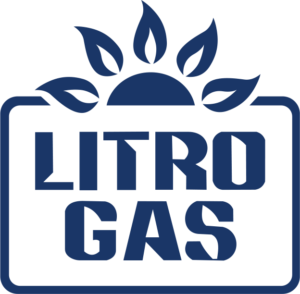The Voice of Mr Theshara Jayasinghe, Chairman, Litro Gas Lanka Limited
The Voice spoke with Mr Theshara Jayasinghe, Chairman, Litro Gas Lanka Limited to hear his thoughts and goals for Litro Gas Lanka.
 WLPGA: Given the universally challenging year we have all gone through, where do you believe are the key opportunities for the Sri Lanka LPG market in 2021 and going forward?
WLPGA: Given the universally challenging year we have all gone through, where do you believe are the key opportunities for the Sri Lanka LPG market in 2021 and going forward?
Theshara Jayasinghe: It is no elaboration to highlight that 2020 was a year to forget for most people. But as the world struggled with the rapidly developing COVID-19 pandemic, the LPG industry continued to do its job – to provide reliable, safe and secure source of energy to families across the world whose lives in some cases have been turned upside down by lockdowns and stay at home orders. The LPG sector rose to the challenge as governments across the world recognised the essential nature of our business.
Sri Lanka, along with the rest of the world is facing the greatest health and economic crisis in the living memory. COVID-19 pandemic has fast escalated to a global crisis and no one can ignore the threat it poses to a country’s stability. Assessing the impact of COVID-19 on Sri Lankan economy and especially on the private and public sector companies is by no means an easy task, as Sri Lanka has never faced a crisis of this scale before. Although the COVID-19 pandemic created an economic downfall that impacted gas prices across the world, Litro Gas as a responsible state-owned enterprise with a national obligation was able to rise to the challenge, successfully maintaining a consistent supply of LPG throughout the lockdown and beyond whilst achieving a present market share of 78%.
As Sri Lanka and the world strive to recover from COVID-19 impacted economic conditions, energy security and stability have become critical issues for countries all over the world. In the global energy sector, fluctuating prices and supply levels have been areas of concern driving prices and demand. Against such challenging conditions, Litro Gas Lanka affirms a strong commitment of maintaining consistent supplies of LPG as the national LPG provider.
Increasing household use of LPG is one of several pathways to meet the goal of universal access to clean cooking and heating solutions by 2030, as stated in the United Nations’ Sustainable Energy for All Initiative launched in 2011. I believe the immediate key opportunities for Sri Lankan LPG market in 2021 and going forward is to ensure energy security in the country and to offer LPG to customers at the best and affordable price whilst managing all the external economic conditions with the support of the Sri Lankan Government. LPG plays an important role in reducing energy poverty in Sri Lanka by fulfilling the energy requirement of the average household while safeguarding consumer health and safety. Given that its market is characterised with significant barriers to entry, Government is required to intervene and ensure a competitive market equilibrium.
We will also discuss with the government to include formal adoption of international standards, ensuring effective enforcement which also helps promote fair competition, recognising the limitations of price subsidies, improving roads and port infrastructure and reducing port congestion, which incurs high demurrage charges for LPG imports.
Above all, communicating information widely and creating a dialogue with our customers is another key area of focus. The domestic usage of LPG in Sri Lanka stands at around 35% of the population who use it as their primary source of energy - there is tremendous potential for the LPG sector since alternate energy sources such as firewood and kerosene are still in use. Empowering communities to upgrade to clean energy from these energy sources causing indoor pollution is a key area of consideration for Litro Gas Lanka.
WLPGA: How do you feel that the LPG market in Sri Lanka responded to the COVID-19 pandemic?
Theshara Jayasinghe: As the COVID-19 pandemic started impacting businesses and consumer buying patterns across Sri Lanka and the world, organisations in Sri Lanka had to adapt operational methodologies and transform strategies formulated for customer outreach initiatives.
Litro Gas Lanka Limited, an essential service provider to the nation stepped up a multi-faceted and swift response to serve Sri Lankans island-wide in order to ensure they had an uninterrupted supply of Litro Gas during the COVID-19 pandemic. Although, the distribution mechanism, dealer network and certain dealers in the lockdown and curfew areas were affected during these challenging times, adopting the stance ‘Stay Home, Stay Safe – We will deliver Litro Gas to your Doorstep’, the company deployed its dealer network to augment their home delivery promise. Litro Gas initially deployed government permitted 500 dealers and then expanded to over 1,000 and consequently became the first conglomerate, which fulfilled customer requirements swiftly without any shortages, during this difficult period.
Overcoming economic adversity through resilience and financial efficiency has been at the heart of Litro Gas strategy as the company mitigated a powerful turnaround during challenging times.
Managing people, processes and technology efficiently were key indicators that Litro Gas followed in order to minimise the impact of operating efficiencies across the company. Litro Gas also partnered with “PickMe Food” to facilitate delivery within Colombo and subsequently expanded to the outskirts. Moreover, the company deployed a fleet of ‘Mobile Gas Delivery’ trucks to deliver Litro Gas cylinders directly to households island-wide. The company’s communication channels further took a novel approach by introducing a hotline number (1311) for consumers to reach their LPG needs swiftly. Further, the Litro Gas digital and social media platforms were highly active and present to support customers through exemplary customer service and all inquiries during this challenging period. Litro Gas Home Delivery mobile app was also launched during this time in order to ensure all our customers island-wide had an uninterrupted supply of LPG throughout.
The company owns a network of 42 distributors, approximately 14,000 point-of-sale locations and 1,500 home delivery hubs who meet the energy needs of the country.
For the outstanding COVID-19 management procedure, Litro Gas Lanka received recognition standard certification for SLS 1672: 2020 by Sri Lanka Standards Institute for being compliant with the SLS COVID-19 safety management systems requirements for organisations, received the ARGUS/WLPGA Global Award for successful management of COVID-19 and achieved a Gold Award at Sri Lanka Institute of Marketing (SLIM) Restart Resilience Awards 2020 for COVID-19 Recovery.
WLPGA: And what do you see as key threats to the industry in Sri Lanka, and how might the industry overcome them?
Theshara Jayasinghe: While consistent data shows that the main components of LPG, butane and propane prices have been fluctuating in the global market place throughout, prices of LPG in Sri Lanka have been stabilised for a considerable period of time. LPG in Sri Lanka is much more than just a commodity. It is an economic indicator that fuels home fires and keep businesses afloat, from the smallest wayside vendor to large industrial concerns and organizations. By keep our prices stable, we have passed on a considerable economic benefit to the people.
Driving the vision of H.E The President Gotabaya Rajapaksa - “Vistas of Prosperity and Splendour”, in broad-basing economic benefits to the people during the COVID-19 pandemic, Litro Gas Lanka has been consistently delivering price stability offering direct benefit to the consumers. In addition, the current pricing mechanism for LPG in Sri Lanka is governed by the Consumer Affairs Authority and is structured to offer value addition to consumers.
The world energy picture is a challenging one which causes a great threat to our industry. Globally, LPG prices have increased significantly over the past year as a result of the currency fluctuations and procurement costs. A metric tonne of LPG hit USD 620 in July, 2021 and is further expected to climb to USD 700 in August, impacting the costs of obtaining LPG considerably. In the meantime, the depreciation of the Rupee has resulted in higher freight charges while the shipping and logistics industry is still to recover from COVID-19.
Despite tough external conditions and market upheavals, we work hard to ensure our consumers have access to consistent supplies. The distributor network of Litro Gas Lanka has a base of 200,000 cylinders filled with LPG throughout the island while the company has the capacity to fill 100,000 gas cylinders per day.
To overcome these threats, we will seek assistance from the Government of Sri Lanka to manage the external conditions and maintain the priority which has always been to bring the Sri Lankan LPG industry up to date with the standards of the global energy sector while ensuring safety at all levels of operations and delivering value for money in energy solutions for our customers.
WLPGA: On a wider angle, what are the main areas of focus for improvement for the LPG market in Sri Lanka?
Theshara Jayasinghe: With over 100,000 ships crossing the East-to-West shipping route every year passing Sri Lanka, a regional energy hub based on the Hambantota Port adds significant value to not only to the maritime energy trade but also to regional markets. This value creation is critical to position Sri Lanka as a strategic partner for the region’s energy value chain in the eyes of key LPG industry players.
Technology is also rapidly changing the way we do business and adapting and investing in advanced logistics and infrastructure can help the energy sector respond positively to these changes. There is also a pressing need to develop skills, improve capacity and the knowledge of the country’s industry workforce. Conducive policies and the best in advanced technologies are required to make use of these opportunities. However, this is not something a government could accomplish on its own. The private and public sectors need to urgently join hands to focus on capacity building to face future challenges and to reap the economic benefits that come along with this.
Encouraging industries/businesses across sectors to switch to LPG instead of kerosene or firewood, has been a key component of Litro Gas Lanka’s strategy to drive efficiency levels and uplift industries to utilise clean and safe energy. Empowering communities to upgrade to clean energy from other energy sources causing indoor pollution is a key area of consideration for Litro Gas Lanka and the company will work with the Government to uplift the standard of living of people.
WLPGA: As a WLPGA member, what are your hopes and goals?
Theshara Jayasinghe: For Litro Gas, it has been a significant journey with a heritage over 150 years that defines the growth of the LPG sector in the country. That legacy has been an integral part of Sri Lanka’s energy history, establishing LPG as a mainstream energy of choice for Sri Lankans.
As a WLPGA member I feel honoured to be connected with the association, a global voice for all LPG Industry stakeholders. WLPGA has been working actively during the last three decades or more for Global LPG Industry, creating a strong synergy among all stakeholders. It has emerged as a definitive authority in promoting best practices.
As the trusted partner of first choice, the Litro Gas journey continues, to a future of unlimited possibilities.
I look forward to a very successful and grand 33rd World LPG Forum in Dubai in 2021.
